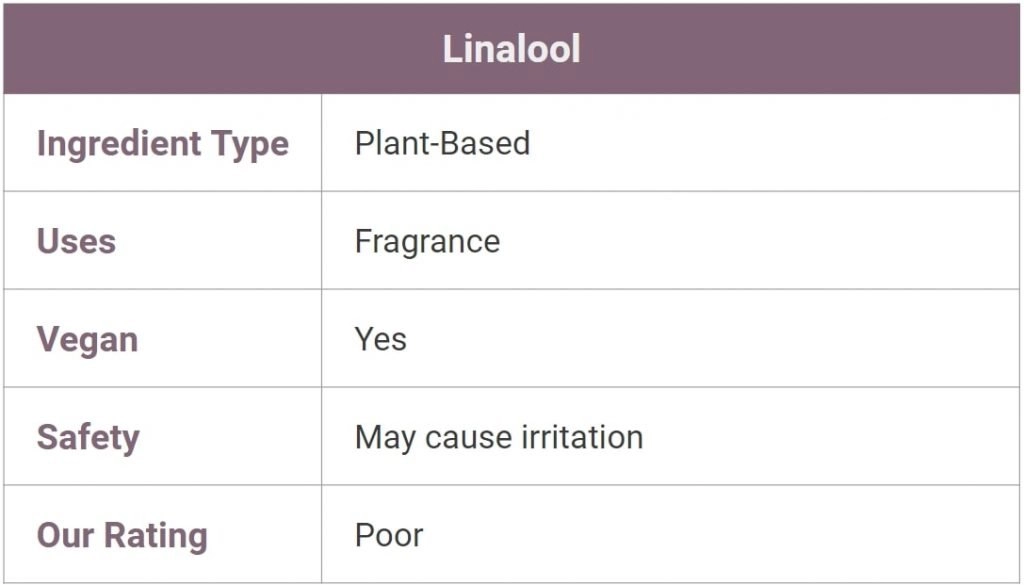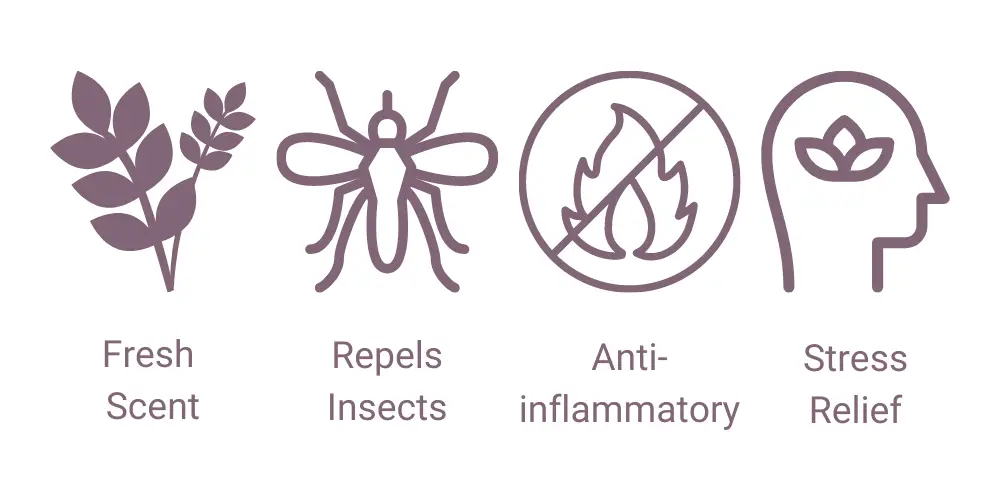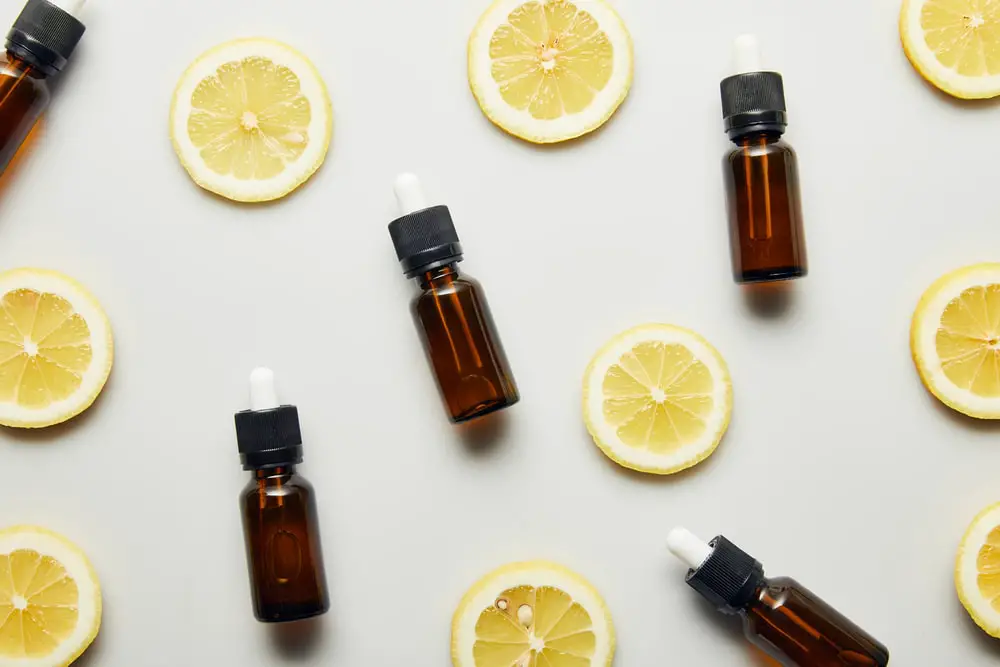Not all natural ingredients are good for your skin. Just think about poison ivy. It’s natural, but we wouldn’t ever want to rub that all over our face. Linalool is a great example of this. This ingredient is sourced from plants but it can lead to allergies and irritation to the skin. It won’t leave the skin with oozing sores like poison ivy but it can irritate the skin.
This post may contain affiliate links. Read the full disclosure here
But isn’t that worth it for a nice flowery fragrance? Not always…
What Is Linalool?
Linalool is a terpene alcohol, which is a type of fragrant hydrocarbon. This alcohol is found in a wide variety of flowers and spice plants. It’s mostly known for its fragrant, flowery, slightly spicy scent. Over 200 different plants produce linalool, but it’s primarily sourced from plants in the mint family, as well as from cinnamon, rosewood, citrus fruits, lavender, chamomile, and even some types of birch trees and fungi.
Linalool is often found as a component of various essential oils, but it can also be processed and extracted into its pure form. Linalool can be found in skincare products, cosmetics, shampoo, soap, and more.

Linalool Uses & Benefits for Skin
The main reason linalool is often used in skincare is for fragrance. Linalool has fresh, floral scent that can improve the smell of skincare products. It can also has anti-inflammatory properties that may help soothe and calm the skin. In addition, linalool can help repel bugs.

Fresh scent
About 60-80% of soaps, detergents, shampoos, lotions, and other scented or perfumed hygiene products use linalool for its fresh, flowery scent. When combined with other fragrances and essential oils, linalool helps provide a pleasing, fresh smell in skin care products.
Anti-Inflammatory
Linalool has anti-inflammatory properties that may help soothe and calm skin. One study in 2002 found that linalool plays a major role in the anti-inflammatory activity found in essential oils. The evidence suggests that linalool and linalyl acetate could be anti-inflammatory agents.
Repels insects
Many terpenes have been shown to have anti-insect properties, and repel insects like mosquitoes, flies, and more. Linalool has been shown to have these properties, and is often used in insect repellents along with other terpenes like camphene and citronellol to repel a wide variety of insects while outdoors.
This isn’t the typical benefit most look for in skincare products but it’s a perk nonetheless.
Stress relief & relaxation
Terpenes from lavender have been shown to help with relaxation and stress relief. While this is also less practical for skincare products this is why this is a popular ingredient in essential oils.
Is Linalool Vegan?
Yes. Linalool is sourced exclusively from plants, so it’s not derived from any animals or animal products. However, since so many products contain linalool, it’s always a good idea to do your own research on the brand and look closely at the product label if you want to make sure you only support vegan skincare brands.
Is Linalool Safe To Use In Skincare?
Contrary to the anti-inflammatory benefit listed above, linalool may irritate and sensitize the skin. It can disrupt the skin barrier leading to irritation and increase the changes of an allergic reaction.
The risk of skin irritation is reduced with lower concentrations but it still poses a risk.
It is also on the European Commission’s list of 26 known allergens. Some of the other ingredients on this fragrance allergen list include Geraniol, Coumarin, Benzyl Salicylate, and Limonene.
Linalool doesn’t pose a risk in terms of toxicity and cancer but it may irritate sensitive or allergy-prone skin.
Since the benefits of linalool are limited, Skincare Lab recommends avoiding when possible, especially for those with sensitive skin types.
Concerns
In a study done in Europe, around 7% of people were allergic to linalool in its oxidized form. If you’re not sure whether or not you’re allergic to linalool, you may want to test the product on a small patch of your skin to ensure that you avoid any potential irritation or other side effects.
Also Known As
The term “linalool” is the most common for this compound, and this is what you will find listed on most skin care products, However, linalool is also sometimes called linalyl alcohol, linalyl alcohol, or allo-ocimenol, and it’s also known as 3,7-Dimethyl-1,6-octadien-3-ol or 3,7-Dimethylocta-1,6-dien-3-ol.





